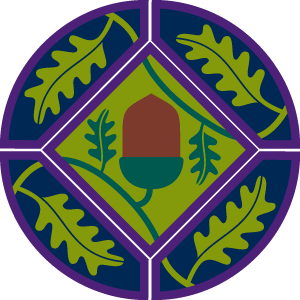
A Scout is a child, usually 10–18 years of age, participating in the worldwide Scouting movement. Because of the large age and development span, many Scouting associations have split this age group into a junior and a senior section. Scouts are organized into troops averaging 20–30 Scouts under the guidance of one or more Scout Leaders or Scoutmasters. Troops subdivide into patrols of about 6–8 Scouts and engage in outdoor and special interest activities. Troops may affiliate with local, national, and international organizations. Some national Scouting associations have special interest programs such as Air Scouts, Sea Scouts, outdoor high adventure, Scouting bands, and rider Scouts.

Explorer Scouts, frequently shortened to Explorers, is the fifth section of The Scout Association in the United Kingdom for 14- to 18-year-olds. The section was introduced in 2001 and formally launched in February 2002, alongside Scout Network, to replace the former Venture Scout section for fifteen-and-a-half to twenty-year-olds.
Scouts South Africa is the World Organization of the Scout Movement (WOSM) recognised Scout association in South Africa. Scouting began in the United Kingdom in 1907 through the efforts of Robert Baden-Powell and rapidly spread to South Africa, with the first Scout troops appearing in 1908. South Africa has contributed many traditions and symbols to World Scouting.
Venturer or Venture Scouts are programs in some Scouting organisations for young people of various age ranges in the 14–20 age range. A participant in the program is called a Venturer.

Rover Scouts, Rovers, Rover Scouting or Rovering is a program associated with some Scouting organizations for adult men and women. A group of Rovers is called a 'Rover Crew'.

Gaisce – The President's Award is an award in Ireland, earned by young people between the ages of 14 and 25 for participating in several activities for a certain period. There are three awards: bronze, silver and gold.

The Scout Network is the sixth and final youth section of The Scout Association in the United Kingdom, catering for those aged between 18 and 25 years. The section was formally introduced in February 2002 alongside Explorer Scouts with both replacing the former Venture Scouts section for fifteen-and-a-half- to twenty-year-olds.

A Scout leader or Scouter generally refers to the trained adult leader of a Scout unit. The terms used vary from country to country, over time, and with the type of unit.

Scouts, often referred to as the Scout section to differentiate itself from the wider movement and its parent organisation, is a section of Scouting run by The Scout Association for ten and a half to fourteen year old young people. The section follows on from Cub Scouts and precedes Explorer Scouts. Since 1991, the section has been coeducational and today the Scout section accepts young people from all backgrounds, faiths and genders.

The Pathfinder & Rover Explorer Scouts' Association (P-RESA) is an independent Traditional Scouting Association in the United Kingdom, with International branches. The Association's training programme runs along the lines of Baden-Powell's original Scouting for Boys, upholding the traditions and practices set out by B-P, using the 1938 Boy Scouts' Association Policy Organisation & Rules (POR) as its basis.
Scouts is the section of Scouts Australia for boys and girls aged 11 to 14 (inclusive). The Scout section follows after Cub Scouts and is before Venturer Scouts. Scouts wear a uniform shirt with navy blue panels, and green shoulders.

Venture Scouts in Scouting Ireland are aged between 15 and 17 years of age. The awards scheme of Venture Scouts is called Rogha, an Irish word meaning Choice. Although many groups use Gaisce, the President's Award, as part of their programme also. Each group has a Venture Scout Executive which, under the guidance of an adult Scouter, designs and implements activities.

Scouts in Scouting Ireland are aged between 11 and a half to 16 years of age. Each group has a Court of Honour/Patrol Leader's Council which under the guidance of an adult Scouter designs and implements activities. Scouts is the section where activities begin to really challenge the youth member and impart responsibility and self-reliance in accordance with the Scout method and the educational philosophy of Baden-Powell. The organisation also currently has Sea Scout and Air Scout programmes. The highest award is the Chief Scout Award.

Sea Scouting has existed in Ireland since 1912 and is a programme framework within Scouting Ireland.
The Queen's Guide award is the highest attainable award for members of Girlguiding.

The Explorer Belt is an award in many Scouting organisations which promotes adventure and self-reliance in an international context.
A Scout District is an administrative division within some Scouting and Guiding organisations.

Young Leaders are Explorer Scouts who choose to provide leadership in Squirrel Scout Dreys, Beaver Scout Colonies, Cub Scout Packs or Scout Troops alongside adult volunteers as a part of the leadership team. Training of Young Leaders is achieved through eleven lettered modules covering the necessary skills to play an active part of the leadership team, with members challenged to apply what they have learned through four 'missions' in their sections.

The Northeast Georgia Council, a local council of the Boy Scouts of America, provides scouting programs for 26 counties in northeastern Georgia, and serves more than 25,000 youth in Cub Scouting, Boy Scouting, Varsity Scouting, Venturing, Exploring, and in-school Learning for Life.
The Explorer Belt is an award available to Rover Scouts in Irish Scouting. Over the last 43 years, over 2,000 Venture and Rover Scouts have gone on Explorer Belt Expeditions. Ireland's Explorer Belt is recognised as being one of the most challenging yet ultimately rewarding activities in Scouting. The Explorer Belt was traditionally linked to the Venture Scout Section but since the introduction of ONE Programme, and the standardisation of age ranges the Explorer Belt is now a Rover Scout event and participants must be over the age of 18. A similar award is available in other Scout associations around the world.












